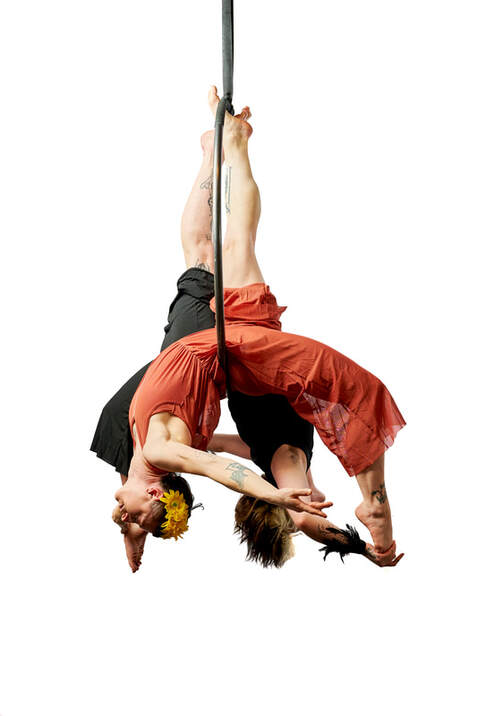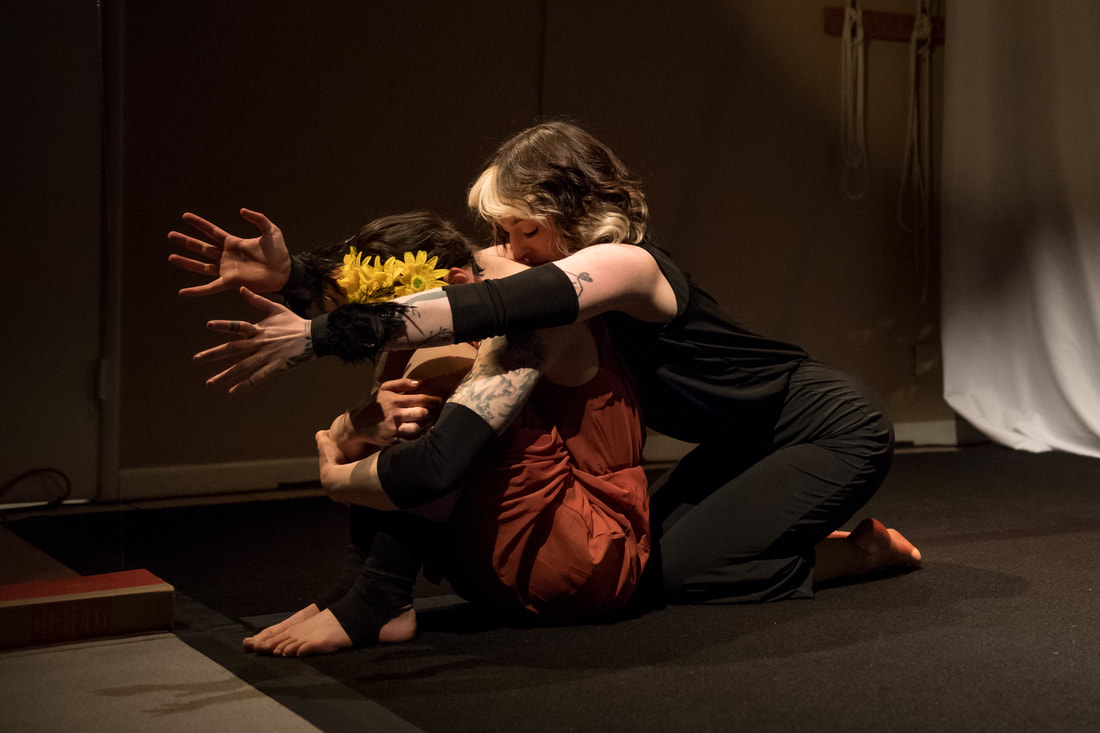OPHELIAA Contemporary Circus show
By Ariel Schmidtke & Lili Katzman Music by Marika Hackman For booking information, contact Ariel Schmidtke Olympia, Washington Sparrow Studios Sunday September 3rd @ 8 p.m. (Open Dress Rehearsal) Tickets by Donation Missoula, Montana Westside Theater Friday September 15th @ 7 p.m. Saturday September 16th @ 6 p.m Madison, Wisconsin Madison Circus Space Saturday September 23rd @ 8 p.m. Glover, Vermont Bread & Puppet's Radical Cheese Festival September 29-October 1st This show is intended for ages 13+ but is suitable for all ages |
Content Warning: Show contains allusions to mental health, suicide, and the artwork of dead white men
Ophelia is a duet. Based on what has been referred to as Shakespeare’s “most relevant” play in contemporary society, we have constructed a retelling of Hamlet from the perspective of Ophelia, combining aerial trapeze, lyra, acrobatics, and shadow puppetry alongside an abridged version of Marika Hackman’s We Slept At Last. Shakespeare’s Hamlet has remained a prominent touchstone within the realm of art and humanities for centuries because of its universally relatable themes regarding moral responsibility, loss, sanity, and revenge. Ophelia, in Shakespeare’s production, is little more than a side character; a casualty of other characters' (mens’) indiscretions–– and what is lost is her story. The show Ophelia centers Denmark's noblewoman and poses questions about the nature of grief and how it manifests in our actions, relationships, and conceptions of self, while (at last) putting to sleep our heroine's narrative.
Ophelia is a duet. Based on what has been referred to as Shakespeare’s “most relevant” play in contemporary society, we have constructed a retelling of Hamlet from the perspective of Ophelia, combining aerial trapeze, lyra, acrobatics, and shadow puppetry alongside an abridged version of Marika Hackman’s We Slept At Last. Shakespeare’s Hamlet has remained a prominent touchstone within the realm of art and humanities for centuries because of its universally relatable themes regarding moral responsibility, loss, sanity, and revenge. Ophelia, in Shakespeare’s production, is little more than a side character; a casualty of other characters' (mens’) indiscretions–– and what is lost is her story. The show Ophelia centers Denmark's noblewoman and poses questions about the nature of grief and how it manifests in our actions, relationships, and conceptions of self, while (at last) putting to sleep our heroine's narrative.


